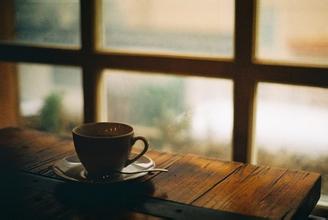Introduction to the characteristics of taste grinding degree of jasmine fragrant Salvadoran coffee bean flavor description treatment
El Salvador coffee beans
Formerly known as "San Salvador" and "Bahia". An important natural deep-water port on the Atlantic coast of Brazil, the capital of Bahia state. It is located on the east bank of Todos (Santos) Bay. With a population of 3459377 (as of August 1, 2010), it is the eighth largest city in Brazil. The ancient city, one of the oldest cities in Brazil, was founded in 1549, and the first churches were built by Jesuit priests in 1549. El Salvador was the capital of Brazil until 1763. It is a comprehensive industrial and commercial city. Oil is produced in the nearby Kandyas oil field. Industries include petroleum refining and petrochemistry, automobiles, food, tobacco, textiles, shipbuilding and so on. There are well-developed land and sea transportation and airports on the outskirts of the city. The port is open and deep, can berth ocean-going ships and super oil tankers, and export textiles, tobacco, coffee, oil and so on. The urban area is built on a peninsula extending into the Atlantic Ocean, divided into high and low cities, with lifts and cable cars connected. Multi-colonial buildings and churches, as well as universities and museums. With beautiful seaside scenery, the resort city of El Salvador has a large number of 16th century buildings and religious buildings, many of which are decorated with 17th and 18th century carvings and many stripes made of colored mud. reflects the characteristics of the colonial period. Its overall characteristics are described through a forest of monuments and consistent ideas. All this shows that El Salvador is a famous example of a city with a suitable structure for a colony.
El Salvador's unique high-grade variety Pacamara, Pacamara is a sudden variation of the bourbon species found by Pacas Pacas- in El Salvador and a hybrid with the giant bean Maragogype, a sudden variant of the Tibica species found in Brazil.
The interesting thing about Christmas farm coffee is that its refining method is secret, using mineral-rich hot spring water to process raw coffee beans. This farm is located in fertile volcanic soil and rich in natural hot spring water, so this natural hot spring water is all used in raw bean processing; there are many coffee gardens in the world, but this method is still rare. in the early 1990s, guerrilla warfare greatly damaged the country's national economy, reducing coffee production from 3.5 million bags in the early 1970s to 2.5 million bags in 1990-1991. The eastern part of the country was most affected by guerrilla warfare, and many farmers and workers were forced to leave the manor. The shortage of funds has led to a sharp drop in coffee production, from 1200 kg per hectare in the past to less than 900kg per hectare today. In addition, the government imposed an additional 15% tariff on exported coffee in 1986, that is, an additional 15% in addition to the existing 30% tax. Taxes, together with unfavorable exchange rates, have greatly reduced the export of coffee and the quality of coffee.
The government finally realized the great role of coffee in the national economy, such as solving employment, earning foreign exchange and developing agriculture, and so on, so it privatized some coffee export industries in 1990, hoping to increase the income rate of coffee in the export market. Salvadoran coffee ranks alongside Mexico and Guatemala as producers of Asa and Merdo, and is fighting for the top two places in China and the United States with other countries. The highlands of origin are large coffee beans of all sizes, which are fragrant and mild in taste. Like Guatemala and Costa Rica, coffee in El Salvador is graded according to altitude. The higher the altitude, the better the coffee. It is divided into three grades according to elevation: SHB (strictly high grown) = highlands, HEC (high grown central) = mid-highlands, and CS (central standard) = lowlands. The best brand is Pipil, which is what the Aztec-Mayan (Aztec-Mayan) called coffee, which has been recognized by the American Organic Certification Society (Organic Certified lnstitut eof America).

Important Notice :
前街咖啡 FrontStreet Coffee has moved to new addredd:
FrontStreet Coffee Address: 315,Donghua East Road,GuangZhou
Tel:020 38364473
- Prev

Colombia Ramon Coffee Estate Name Taste Grind Treatment Variety Features
In Colombia, around 10000 BC, hunter-gatherer societies existed near present-day Bogotá. Around the first millennium AD, the Indians of America created a political system. It is a pyramid structure, the top for the leader. In present-day Colombia, two civilizations adopted this complex system. One is Tayronas in the Caribbean, the other
- Next

Sumatra Coffee Description Flavor Taste Characteristics Variety Production Processing Grind Introduction
Sumatra coffee beans The Arabs of ancient times first dried and boiled coffee beans and drank the juice as a stomach medicine, thinking it could help digestion. Later, coffee was found to have a refreshing effect, and at the same time, because Muslims were forbidden to drink alcohol, coffee was used instead of alcoholic beverages as a refreshing drink and often drunk. After the fifteenth century, Muslims who made pilgrimages to Mecca
Related
- Detailed explanation of Jadeite planting Land in Panamanian Jadeite Manor introduction to the grading system of Jadeite competitive bidding, Red bid, Green bid and Rose Summer
- Story of Coffee planting in Brenka region of Costa Rica Stonehenge Manor anaerobic heavy honey treatment of flavor mouth
- What's on the barrel of Blue Mountain Coffee beans?
- Can American coffee also pull flowers? How to use hot American style to pull out a good-looking pattern?
- Can you make a cold extract with coffee beans? What is the right proportion for cold-extracted coffee formula?
- Indonesian PWN Gold Mandrine Coffee Origin Features Flavor How to Chong? Mandolin coffee is American.
- A brief introduction to the flavor characteristics of Brazilian yellow bourbon coffee beans
- What is the effect of different water quality on the flavor of cold-extracted coffee? What kind of water is best for brewing coffee?
- Why do you think of Rose Summer whenever you mention Panamanian coffee?
- Introduction to the characteristics of authentic blue mountain coffee bean producing areas? What is the CIB Coffee Authority in Jamaica?

